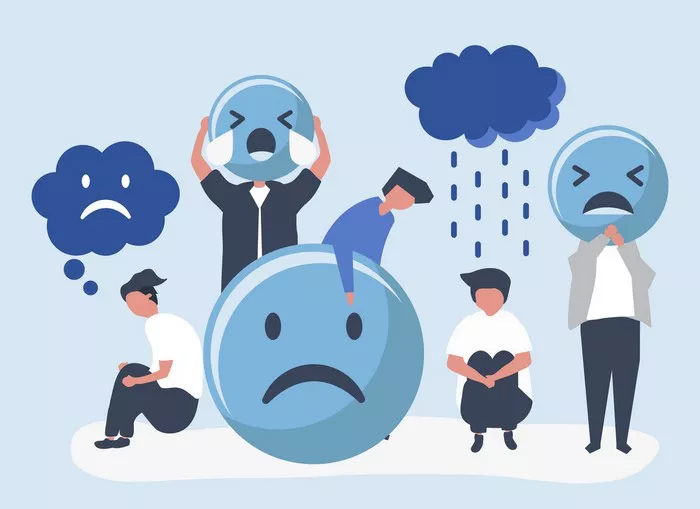Mental illness affects millions of people worldwide, and it’s likely that at some point in our lives, we will encounter a friend or loved one who is struggling with their mental health. Understanding how to support them can be challenging, yet your support can make a significant difference in their recovery journey. This article provides insights into how to help a friend with mental illness, emphasizing empathy, active listening, and practical steps you can take to be a supportive ally.
Understanding Mental Illness
Mental illness encompasses a wide range of conditions that affect a person’s thinking, feeling, behavior, and overall functioning. Common mental health disorders include anxiety disorders, depression, bipolar disorder, schizophrenia, and personality disorders. Each condition presents unique challenges, and symptoms can vary widely among individuals.
Understanding that mental illness is not a personal failure but a medical condition is crucial. Just as one would support a friend with a physical illness, the same compassion and care should be extended to those dealing with mental health issues.
Signs Your Friend May Be Struggling
Recognizing the signs of mental illness is the first step in providing support. Symptoms can manifest in various ways, including:
Emotional Changes: Persistent sadness, irritability, or mood swings.
Behavioral Changes: Withdrawal from social activities, changes in sleep patterns, or neglecting responsibilities.
Cognitive Difficulties: Trouble concentrating, making decisions, or remembering things.
Physical Symptoms: Unexplained aches and pains, fatigue, or changes in appetite.
If you notice these signs in a friend, it’s essential to approach the situation with care and compassion.
How to Help a Friend with Mental Illness
Educate Yourself
Understanding mental health conditions can help you provide better support. Research the specific mental illness your friend is experiencing, its symptoms, and potential treatments. This knowledge will not only inform your conversations but also help you approach your friend with empathy and understanding.
Initiate a Conversation
Approaching a friend about their mental health can be daunting, but it is essential to open the lines of communication. Choose a comfortable and private setting where they feel safe. Use “I” statements to express your concern, such as:
- “I’ve noticed you’ve seemed down lately, and I’m here if you want to talk.”
- “I care about you and want to support you in any way I can.”
Be gentle and patient, allowing them to share their feelings at their own pace. Avoid pushing them to talk if they are not ready.
Listen Actively
When your friend opens up, practice active listening. This means being fully present and engaged in the conversation without interrupting or judging. Show empathy by acknowledging their feelings and validating their experiences. You might say:
- “That sounds really tough; I can’t imagine how you’re feeling.”
- “It’s okay to feel this way; you’re not alone in this.”
Sometimes, your friend may not want advice or solutions; they may just need someone to listen and understand.
Offer Practical Support
In addition to emotional support, consider offering practical help. This can include:
Accompanying Them to Appointments: Offer to go with them to therapy sessions or doctor appointments for moral support.
Helping with Daily Tasks: Assist with chores, grocery shopping, or running errands if they are feeling overwhelmed.
Encouraging Healthy Habits: Invite them to engage in activities that promote mental well-being, such as exercising, cooking healthy meals together, or practicing mindfulness.
Encourage Professional Help
While your support is valuable, it’s important to recognize that you are not a substitute for professional help. Encourage your friend to seek therapy or counseling if they haven’t already. You can help by:
Researching Resources: Look up local mental health services, hotlines, or support groups together.
Offering to Help Make Appointments: Assist them in scheduling appointments or finding a therapist they feel comfortable with.
Be Patient and Non-Judgmental
Mental illness recovery is not linear; there will be good days and bad days. Be patient with your friend and understand that their feelings and behaviors may fluctuate. Avoid making judgments or expressing frustration. Instead, reassure them that you are there for them, no matter what.
Respect Their Boundaries
While it’s essential to be supportive, it’s equally important to respect your friend’s boundaries. If they don’t want to talk or engage in certain activities, don’t take it personally. Let them know you’re available whenever they feel ready to reach out.
Take Care of Yourself
Supporting a friend with mental illness can be emotionally taxing. It’s vital to take care of your own mental health as well. Set boundaries to avoid burnout, and engage in self-care practices that help you recharge. Consider talking to someone about your experiences, whether it’s a trusted friend or a mental health professional.
Know When to Seek Help
If your friend’s situation worsens or if they express thoughts of self-harm or suicide, it’s crucial to take these signs seriously. Encourage them to seek immediate help and, if necessary, contact a mental health professional or crisis hotline on their behalf. Remember, it’s better to err on the side of caution when it comes to someone’s safety.
Conclusion
Helping a friend with mental illness requires compassion, understanding, and patience. By educating yourself, initiating conversations, and providing both emotional and practical support, you can make a significant difference in their recovery journey. Remember that while you can offer support, professional help is often necessary for effective treatment. Most importantly, let your friend know they are not alone; your presence and support can provide hope and comfort during challenging times. Together, we can foster a more supportive and understanding environment for those facing mental health challenges.
Related Topics:
- What To Do To Have A Good Mental Health?
- How To Improve Anxiety Symptoms?
- What Is Emotional Illness?

